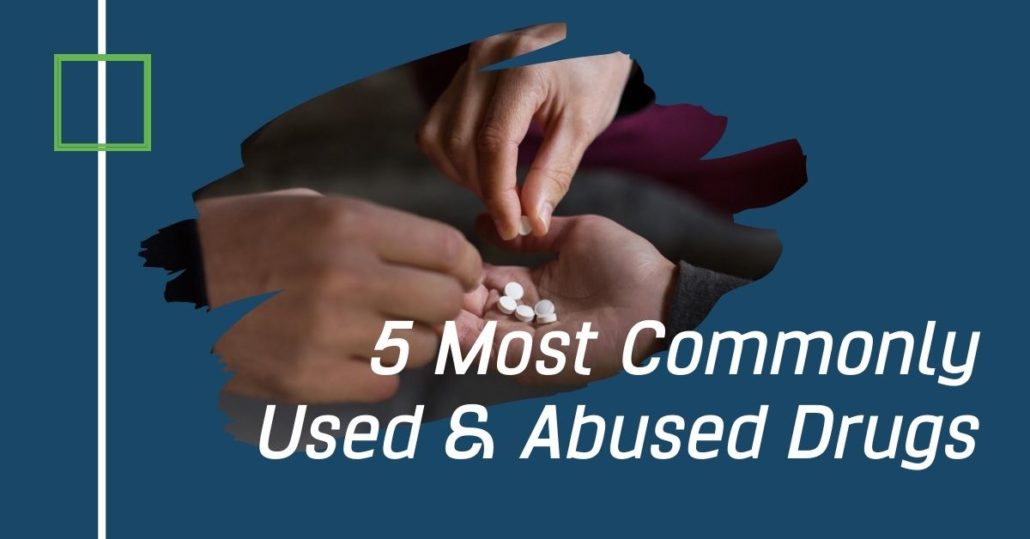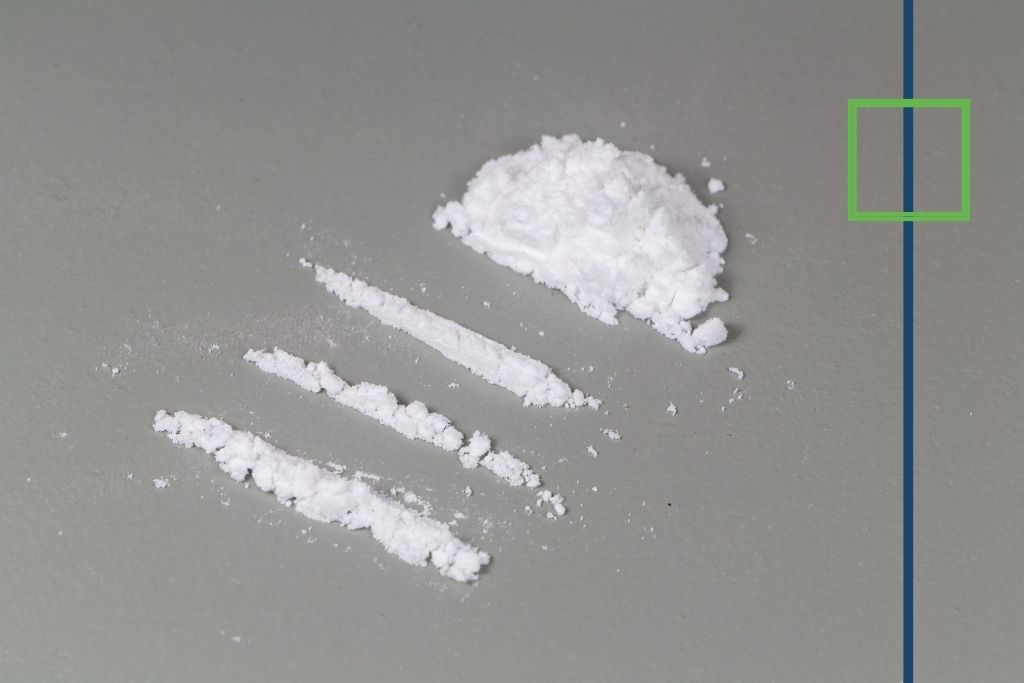What is the Most Addictive Drug and How it is Measured?
What is the most addictive drug? This question seems simple, but the answer depends on whom you ask.
From the points of view of different researchers, the potential for a drug or substance to be addictive can be judged in terms of:
- The harm it causes
- The street value of the drug
- How pleasurable people report the drug to be
- How easily an individual trying the drug will become hooked
- The degree to which the drug causes withdrawal symptoms
- The extent to which the drug activates the brain’s dopamine system
- Require professional addiction treatment


Get Your Life Back
Find Hope & Recovery. Get Safe Comfortable Detox, Addiction Rehab & Mental Health Dual Diagnosis High-Quality Care at the We Level Up Treatment Centers Network.
Hotline (877) 378-4154What is the Most Addictive Drug and its Statistics?
Addiction is a compulsive need to use a substance despite the consequences, and there are some drugs that could be more addictive than others.
According to the 2019 National Survey on Drug Use and Health (NSDUH) [1]:
- 85.6 percent of people ages 18 and older reported that they drank alcohol at some point in their lifetime
- 1 out of every 11 young adults aged 18 to 25 (9.0 percent) in 2018 was a current heavy alcohol drinker
- 6.2 percent of adults aged 26 or older in 2018 were current heavy drinkers
According to the Substance Abuse and Mental Health Service Administration (SAMHSA) [2]:
- 2 in 5 young adults aged 18 to 25 in 2018 (38.7 percent) were past-year users of illicit drugs. This percentage corresponds to about 13.2 million young adults who used illicit drugs in the past year
- In 2018, about 1 in 6 adults aged 26 or older (16.7 percent) were past year users of illicit drugs or about 35.9 million adults in this age group
Let’s explore seven of the most addictive drugs and why they’re so addictive.
Get Help. Get Better. Get Your Life Back.
Searching for Accredited Drug & Alcohol Rehab Centers Near You? Or Mental Health Support?
Even if you have failed previously, relapsed, or are in a difficult crisis, we stand ready to support you. Our trusted behavioral health specialists will not give up on you. Call us when you feel ready or want someone to speak to about therapy alternatives to change your life. Even if we cannot assist you, we will lead you wherever you can get support. There is no obligation. Call our hotline today.
FREE Addiction Hotline – Call 24/7What is the Most Addictive Drug – The 7 Most Addictive Drugs, and How You Can Get Help
1. Heroin
What is the most addictive drug? Heroin is number one in our list. According to the National Institute on Drug Abuse (NIDA) [3], heroin is the fastest-acting and most abused opioid. Opioids are drugs that relieve pain and provide a euphoric “high.” Opioids include prescription painkillers, like oxycodone and morphine, or illegal drugs like heroin and street fentanyl.
According to a 2020 review published by the National Institutes of Health (NIH) [4], about 80 percent of heroin users began abusing prescription opioids, and about 400,000 Americans aged 12 and older live with heroin addiction. Nearly 80 percent of Americans using heroin (including those in treatment) reported misusing prescription opioids prior to using heroin [5].
This potent Opiate has an alarming rate of addiction, with 1 in 4 individuals who try Heroin becoming addicted. This drug is hazardous because the dose that can cause death is only 5 times greater than the dose required for a high. Additionally, Heroin has an extremely high risk of death from a relapse.
Heroin is an opioid drug made from morphine, a natural substance taken from the seed pod of various opium poppy plants. Heroin users feel a rush of euphoria after snorting, injecting, or smoking the drug. It doesn’t take long to develop a tolerance to this drug, and users will need to keep increasing their dose to get the same effect.
Withdrawal symptoms motivate abusers to continue using the drug. Common withdrawal symptoms are severe bone and muscle pain, vomiting and diarrhea, cold flashes, restlessness, and uncontrollable leg movements. Long-term effects of Heroin addiction can result in loss of white matter in the brain, which affects behavior control and decision-making.
2. Cocaine/Crack
Cocaine, crack cocaine, also known as 8 ball of coke, is number two in our list of what is the the most addictive drug. Cocaine is a powerfully addictive stimulant drug made from the leaves of the coca plant. Cocaine increases levels of dopamine in brain circuits controlling movement and pleasure, leading to health effects like extreme energy and happiness, hypersensitivity to sound, sight, and touch, irritability, mental alertness, and paranoia.
According to the Drug Policy Alliance, crack is a type of smoked cocaine that is faster acting but almost chemically identical. According to the United States Department of Health and Human Services, five and a half million people used cocaine, including crack, in 2019, and about a million of those people were addicted.
Drug dealers often mix it with other substances such as cornstarch, talcum powder, or flour to increase profits. it is also very common for dealers to cut Cocaine with other drugs such as Fentanyl, greatly increasing the risk of overdose.
Large amounts of cocaine can lead to bizarre, unpredictable, and violent behavior. Cocaine use can lead to severe medical consequences related to the heart and the respiratory, nervous, and digestive systems.

Common withdrawal symptoms are depression, insomnia, nightmares, fatigue, and slowed thinking. Users who snort Cocaine may experience nosebleeds, loss of smell, runny nose, and problems swallowing. Those who ingest the drug can have severe bowel decay.
In experiments on animals, cocaine caused dopamine levels to rise more than three times the normal level. Crack cocaine has been ranked by experts as being the third most damaging drug and powdered cocaine, which causes a milder high, is the fifth most damaging. About 21% of individuals who try cocaine will become dependent on it at some time in their life. Cocaine is similar to other addictive stimulants, such as crystal meth.
3. Methamphetamines
Methamphetamines, also called meth or crystal meth, are highly addictive stimulants that cause euphoric feelings and a physical high. Long-term meth addiction can cause psychosis, brain damage, and organ failure. It is number three of the what is the most addictive drug.
According to the report published by the Substance Abuse and Mental Health Service Administration (SAMHSA), in 2018 [6]:
- An estimated 0.8 percent of young adults aged 18 to 25 were past year methamphetamine users. This percentage represents 273,000 young adults who used methamphetamine in the past year.
- Among adults aged 26 or older in 2018, 0.7 percent were past year methamphetamine user. This percentage represents 1.6 million adults in this age group who used methamphetamine in the past year.
Meth imitates not one but two important chemicals in the brain: norepinephrine and dopamine, the neurotransmitter responsible for feelings of energy (adrenaline) and alertness.
Crystal meth can release as much as 10 times the normal level of dopamine, and the excess of artificial norepinephrine suppresses natural adrenaline production–essentially messing up the chemical balance in the brain.
Worse, methamphetamine can damage the dopamine and norepinephrine-releasing neurons, leading to a drastic decrease in their production. Where does this lead to? You guessed it. Tolerance, cravings, and taking more meth.
4. Alcohol
Alcohol is the most widely used psychoactive drug in America. It is a depressant, meaning it slows down the reactions and functioning of the brain. It also decreases anxiety in lighter doses. The availability of alcohol and its popularity can make it more addictive, In terms of the sheer number of individuals addicted, alcohol is the substance with the highest number of cases worldwide and it is number four on our list of what is the most addictive drug.
An estimated 95,000 people (approximately 68,000 men and 27,000 women) die from alcohol-related causes annually, making alcohol the third-leading preventable cause of death in the United States. Alcohol consumption can damage the brain and most body organs, including the heart, liver, and pancreas. It also increases the risk of some cancers, weakens the immune system, puts fetal development at risk, and causes deadly vehicle crashes.
Excessive drinking has a long list of associated health issues including high blood pressure, stroke, alcohol poisoning, memory problems, anxiety, and depression. Withdrawal from alcohol can cause delirium tremens which can result in death. Other horrible symptoms include hallucinations, tremors, and seizures.
People who drink alcohol can develop a psychological addiction. Over time, this psychological addiction can turn into a physical addiction. When someone is physically addicted to alcohol, giving up drinking results in severe withdrawal symptoms. The world’s most addictive substances include both legal and illegal substances. If you find yourself abusing any of these drugs, it’s important to get the appropriate help.
5. Nicotine
Nicotine, the addictive compound found in tobacco products like cigarettes, can be just as addictive as cocaine or heroin. According to the Centers for Disease Control and Prevention (CDC) [7], smoking cigarettes can cause cancer, heart and lung disease, diabetes, and strokes. It is number five on out list of what is the most addictive drug.
Half of the addictive nature of nicotine comes from nicotine’s ability to activate the reward pathway by increasing levels of dopamine. Nicotine also mimics another chemical in the brain–the nicotinic receptors. Regular smoking reduces the number and sensitivity of these receptors and requires the user to keep ingesting nicotine just to maintain normal brain function.
When somebody smokes a cigarette, nicotine is rapidly absorbed by the lungs and delivered to the brain. Withdrawal symptoms start with a powerful craving for Tobacco, followed by irritability, trouble sleeping, issues paying attention, and an increased appetite.
6. Methadone
Methadone is an opiate drug that is often used in the treatment of heroin addiction. Ironically, this drug can also be highly addictive on its own. For this reason, any time that the drug is being used to ease the symptoms of withdrawal, the user should be closely monitored in a medical setting. It’s number six on our list of what is the most addictive drug.
Doses should be slowly tapered to decrease withdrawal symptoms while trying to avoid creating a secondary addiction to the methadone itself. It is also important to note that other drugs such as Vivitrol and Suboxone can also be used for Medication Assisted Treatment, without many of the concerns associated with methadone.
Methadone’s effects are similar to the effects of heroin, but withdrawal from methadone is painful and difficult, often lasting longer than a month. Withdrawal symptoms include anxiety, muscle tremors, nausea, diarrhea, vomiting, and abdominal cramps.
It has a low pleasure score on the factors for dependence but ranked high in psychological and physical dependence. It is available as a tablet, oral solution, or injectable liquid. Some of its street names are amidone, chocolate chip cookies, fizzies, Maria, Pastora, salvia, and wafer.
7. Benzodiazepines
Benzodiazepines (Benzos) are some of the most commonly prescribed medications in the US and help reduce seizures and anxiety, relax muscles, and help users sleep. They are also commonly abused because of their addictive properties. Examples of Benzos include Xanax, Valium, and Restoril. It’s number seven on list of what is the most addictive drug.
As the body continues to adapt, tolerance builds quickly, and when tolerance is high, quitting gets harder. Benzo withdrawal can be fatal in certain circumstances, meaning medically supervised detox is necessary.
Within 1 to 4 days of discontinued use of Benzos, users may start experiencing insomnia and anxiety. After that, for the next 10 to 14 days without the drug, people might experience panic attacks, sleep disturbance, dry retching and nausea, headaches, and muscular pain and stiffness among a host of other unpleasant symptoms.
First-class Facilities & Amenities
World-class High-Quality Addiction & Mental Health Rehabilitation Treatment
Rehab Centers TourRenowned Addiction Centers. Serene Private Facilities. Inpatient rehab programs vary.
Addiction Helpline (877) 378-4154Proven recovery success experience, backed by a Team w/ History of:
15+
Years of Unified Experience
100s
5-Star Reviews Across Our Centers
10K
Recovery Success Stories Across Our Network
- Low Patient to Therapist Ratio
- Onsite Medical Detox Center
- Comprehensive Dual-Diagnosis Treatment
- Complimentary Family & Alumni Programs
- Coaching, Recovery & Personal Development Events
Treatment Options for Drug and Alcohol Addiction
The first step to treatment is realizing when you, or someone you care about, has a substance use disorder. It can be difficult to talk to someone who doesn’t believe they have a substance use disorder or who isn’t ready for help. An intervention can help with this.
Additionally, professional treatment options include:
- Medically-assisted detox
- Inpatient rehab
- Medication-assisted treatment
- Specific substance use disorder treatment programs
Along with medical detox, clients have access to many different treatment options, all of which can be tailored to their exact needs. Some of those treatments include:
- Dual diagnosis treatment
- 12-step program
- Cognitive-behavioral therapy (CBT)
- Recreational therapy
- Individualized and group therapies
- Nutrition education
- Relapse prevention
World-class, Accredited, 5-Star Reviewed, Effective Addiction & Mental Health Programs. Complete Behavioral Health Inpatient Rehab, Detox plus Co-occuring Disorders Therapy.
CALL (877) 378-4154End the Addiction Pain. End the Emotional Rollercoaster. Get Your Life Back. Start Drug, Alcohol & Dual Diagnosis Mental Health Treatment Now. Get Free No-obligation Guidance by Substance Abuse Specialists Who Understand Addiction & Mental Health Recovery & Know How to Help.
Find the Right Treatment Plan at We Level Up NJ
What is the most addictive drug? Hope we’ve helped you answer this question. There is help available to you if you or a loved one has a physical dependence or psychological dependence on the most addictive drug. It does not matter if the addiction is to illegal drugs or common legal drugs like alcohol, this is a disease that can take over your life.
We Level Up NJ provide proper care with round-the-clock medical staff to medically assist your recovery. So, reclaim your life, call us to speak with one of our treatment specialists. Our counselors know what you are going through and will answer any of your questions.

Experience Transformative Recovery at the We Level Up Treatment Center.
See our authentic success stories. Get inspired. Get the help you deserve.



Start a New Life
Begin with a free call to an addiction & behavioral health treatment advisor. Learn more about our dual-diagnosis programs. The We Level Up treatment center network delivers various recovery programs at each treatment facility. Call to learn more.
- Personalized Care
- Caring Accountable Staff
- World-class Amenities
- Licensed & Accredited
- Renowned w/ 5-Star Reviews
We’ll Call You
Sources:
[1] NSDUH – https://www.niaaa.nih.gov/publications/brochures-and-fact-sheets/alcohol-facts-and-statistics
[2] [6] SAMHSA – https://www.samhsa.gov/data/sites/default/files/cbhsq-reports/NSDUHNationalFindingsReport2018/NSDUHNationalFindingsReport2018.pdf
[3] NIDA – https://www.drugabuse.gov/publications/drugfacts/heroin
[4] NIH – https://www.drugabuse.gov/publications/research-reports/misuse-prescription-drugs/what-scope-prescription-drug-misuse
[5] NIDA – https://archives.drugabuse.gov/publications/media-guide/other-commonly-used-addictive-substances